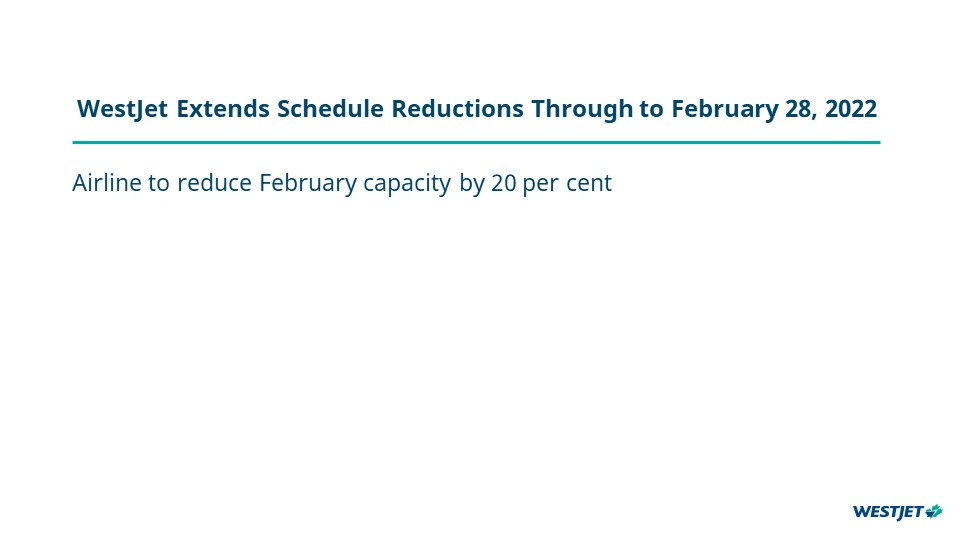WestJet extends schedule reductions through to February 28, 2022

In response to the Omicron variant affecting staffing levels and the prolonged impact of government barriers on our business, WestJet has made the difficult decision to consolidate 20 percent of its scheduled flights from February 1 through to February 28, 2022. These reductions are in addition to WestJet’s January flight consolidation announcement.
“As we continue to navigate the unpredictability of the Omicron variant on our staffing levels along with the ongoing barriers to international travel, we are making every effort to proactively manage our schedule in order to minimize disruption to our guests’ travel plans,” said Harry Taylor, Interim WestJet Group, President & CEO. “To our guests impacted by these additional consolidations, we sincerely apologize for the disruption and appreciate your continued understanding and patience.”
Over the next few days, impacted travellers will be proactively notified of changes to their itineraries by email. Guests are encouraged to utilize self-serve options prior to calling for assistance; guests seeking support outside of the 72-hour travel window are able to schedule a call-back. Flexible change and cancel guidelines and schedule change refund policies remain in place.
“We continue to advocate for the elimination of cumbersome travel rules that are unnecessarily impacting Canadians and prolonging the recovery of the travel and tourism sector,” continued Taylor. “Canada remains one of the only countries in the world requiring multiple molecular tests for fully-vaccinated travellers -- these testing resources should be redeployed to our communities.”
Canada has an envious global leadership position in vaccination rates and aviation remains the only fully-vaccinated transportation sector and the most tested consumer activity in Canada. National alignment and standardization for the sector remains urgently required.

